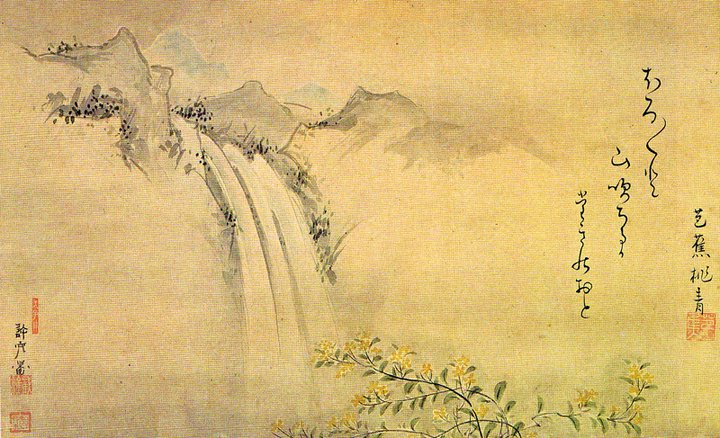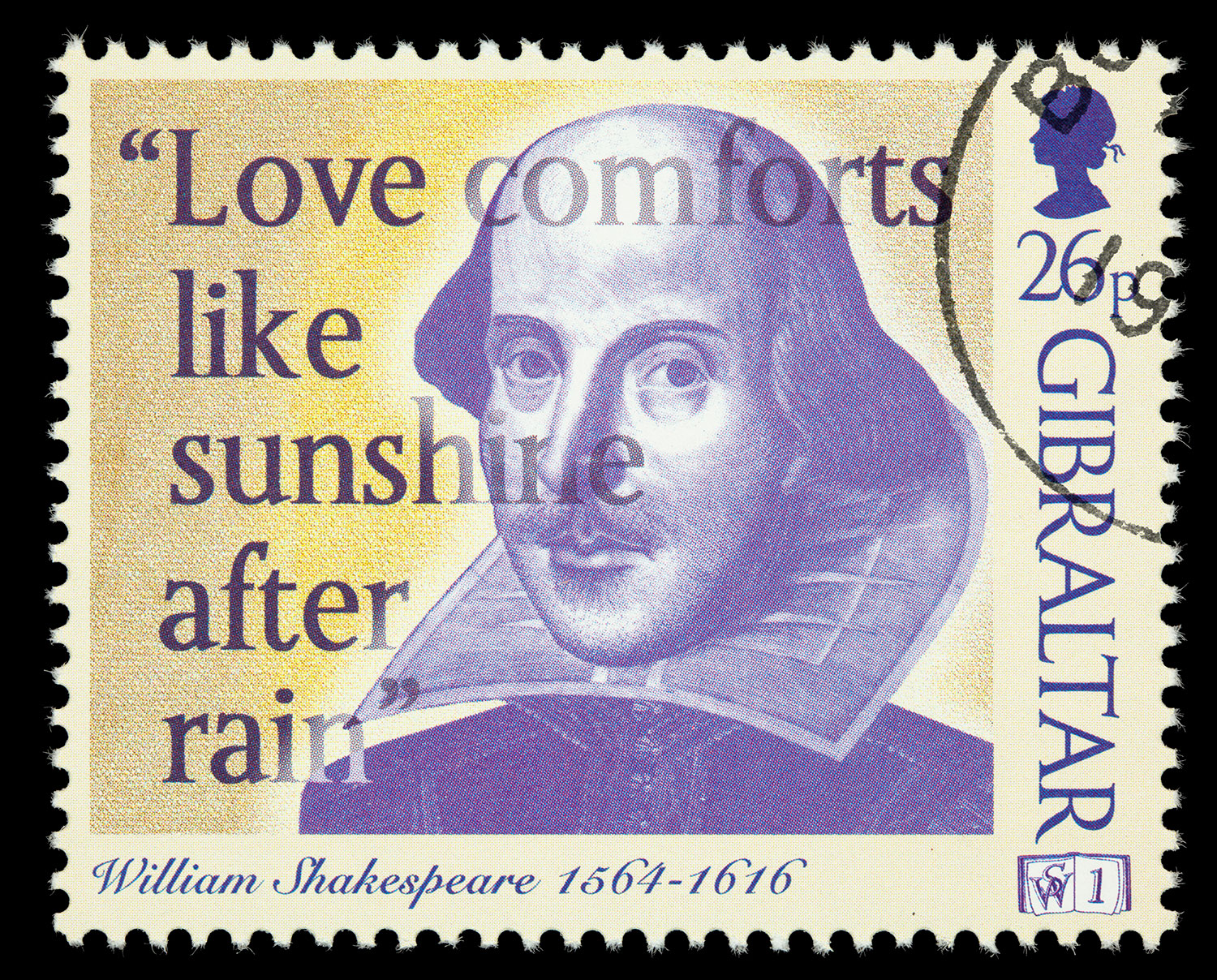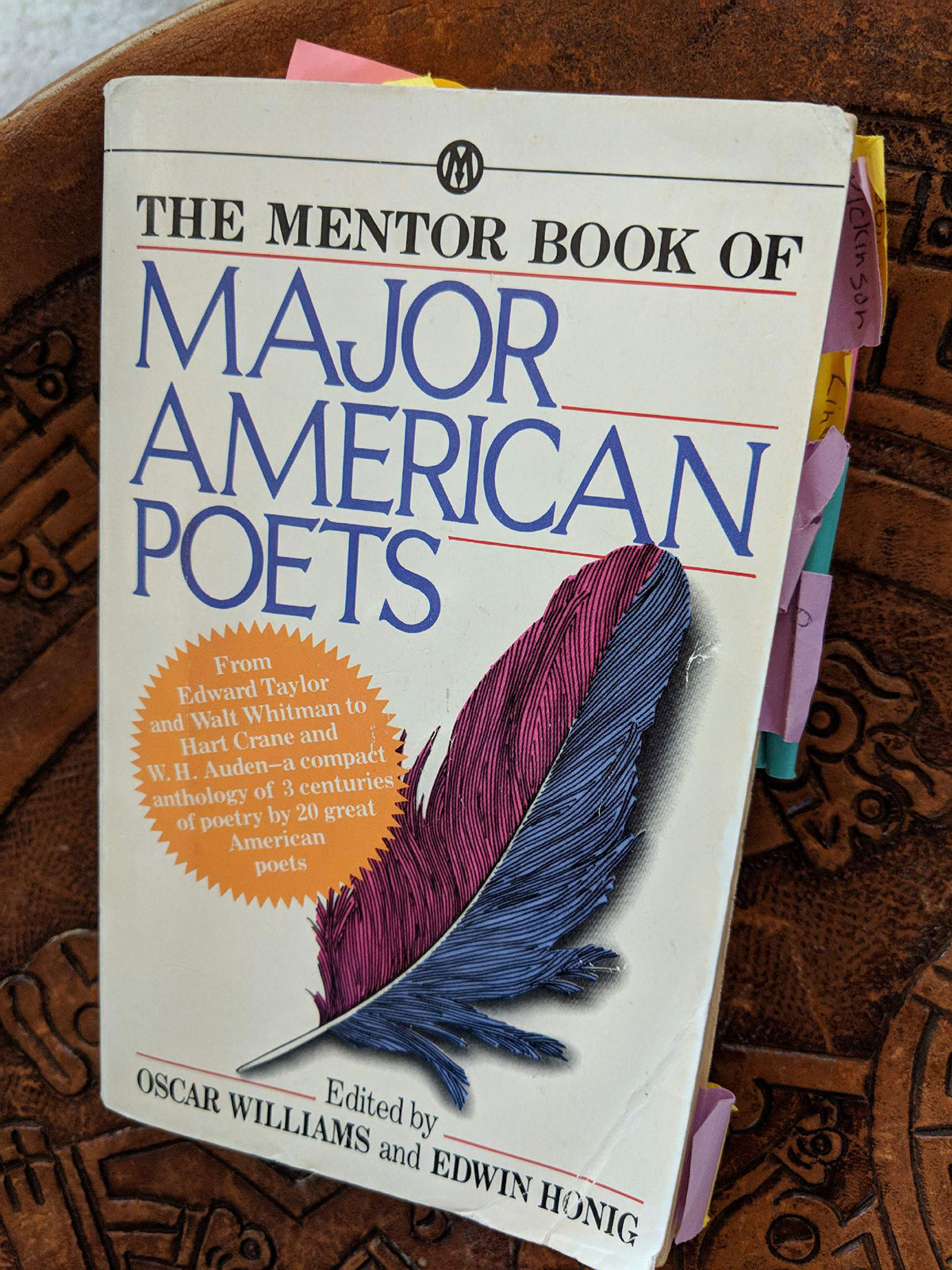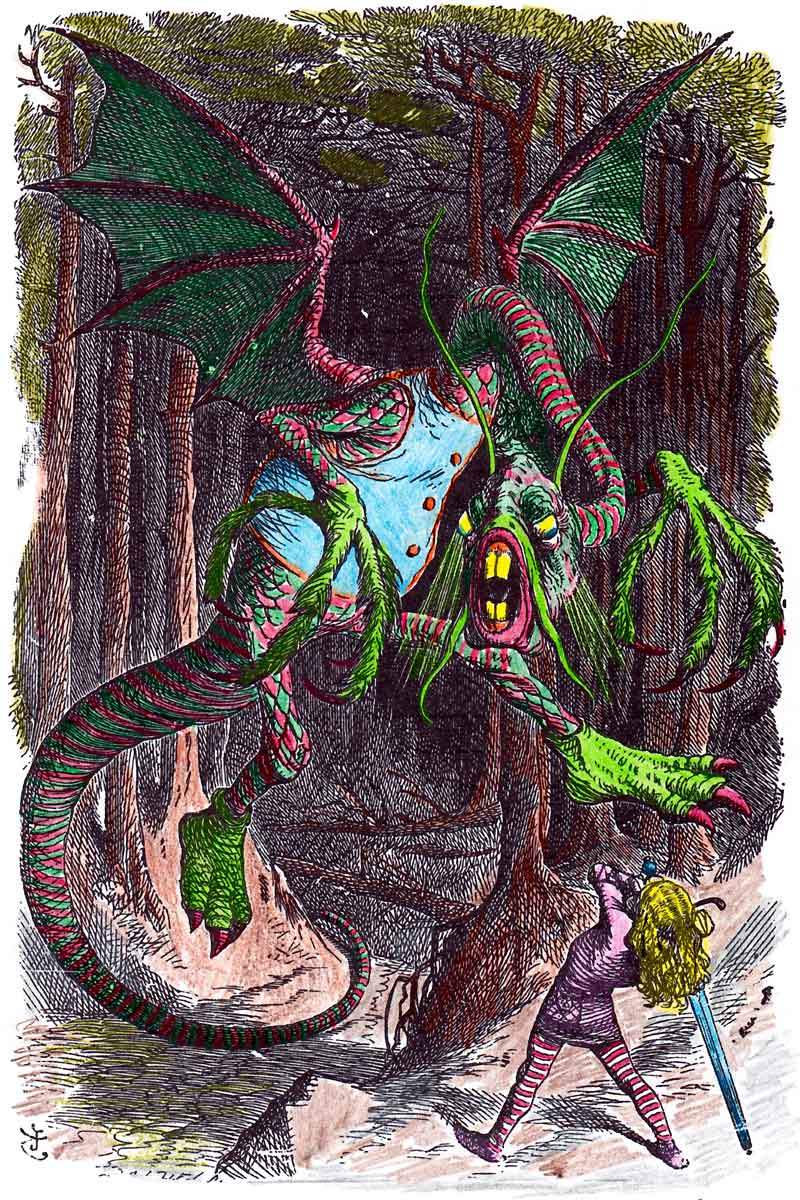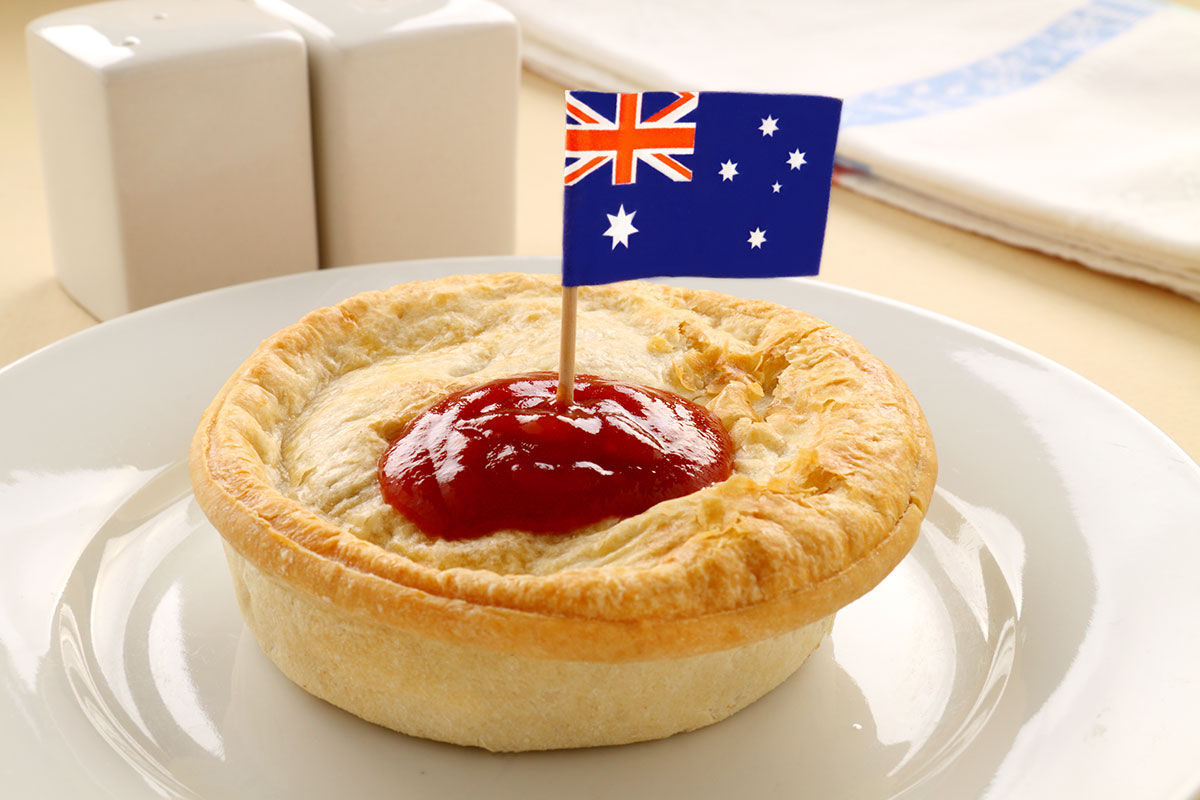Image: Haiku by Matsuo Bashō reading “Quietly, quietly, / yellow mountain roses fall – / sound of the rapids“.
Excerpt from the book Who’s Your Grandma, page 44, modified and expanded for this blog.
Poems, such as the Limerick, Acrostic, Haiku, Sonnet, Octava Rima, and others, require detailed writing instructions. Let’s look at the specifics for writing a Haiku.
The Haiku is a Japanese poem that has 17 syllables and three lines.
The first line of each Haiku has 5 syllables; the second line has 7 syllables; the third line has 5 syllables.
Simply put, the Haiku can create vivid images about seasons and nature. Just for fun, some poets go crazy and use a variety of topics. Easy topics help beginners to focus on the syllabic structures first. Depth of subject matter can arise through practice.
The Haiku poems in the book Who’s Your Grandma? are about grandmothers.
This is Haiku # 2:
Grandmother’s wisdom (5 syllables)
is deep, mighty and sturdy, (7 syllables)
like the wise oak tree. (5 syllables)
This is Haiku # 4:
Thank your lucky stars (5 syllables)
that your grandma is still here. (7 syllables)
Please get to know her. (5 syllables)
Try writing your own 3-line Haiku (7 syllables, 5 syllables, 7 syllables) about trees or blossoms or about your grandmothers! Share your poetry with your friends, family, and your teacher. (Whatever your age, write a Haiku!)
Please put your Haiku poems in the comments area, and we’ll post them here!
NOTE: When you are first writing a Haiku, you might have extra syllables or too few syllables. Stay positive. It’s okay. You’re experimenting! The more you write, the easier it will be for you.
NOTE: The master poets create Haiku poetry with deeper meanings. The Haiku can be a moment in time, it can compare two images in a brief few words, it might evoke strong emotion, and it can be so enlightening that it takes your breath away. Read some Haiku poetry written by these famous poets: Matsuo Basho, Kobayashi Issa, Yosa Buson, and Katsushika Hoksai. Also, Ezra Pound created what he called “Brief Poems,” which were his version of the Haiku. There are other great poets out there, too. Look them up!
~ When translating Haiku or other poetry from native languages into another language, such as Japanese to English, extra syllables may be necessary to correctly convey meaning.
